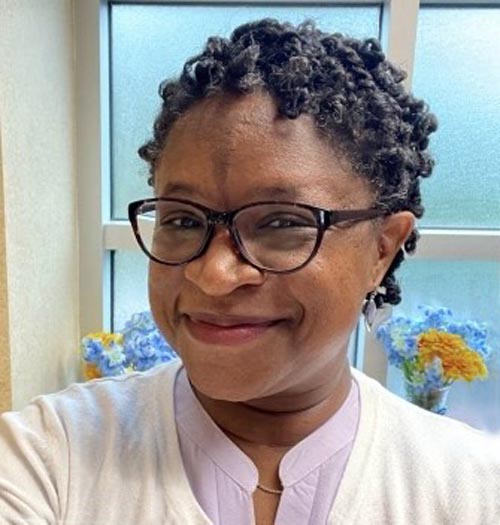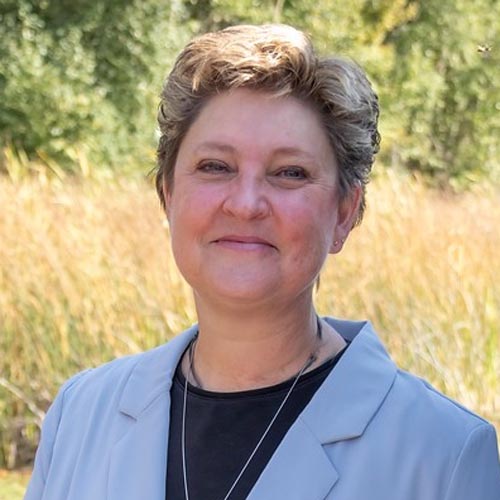
Editors: Drs. Lazarina Topuzova (Robert Morris University), Kem Gambrell (Gonzaga University), and Sydney Richardson (North Carolina A & T State University).
- 4 November 2024
Share this article:
Deadline: Submit your chapter title and a 500-word abstract for your proposed chapters by 9 December 2024 to keepingthefireeditors@gmail.com.
Timeline
9 December 2024: Prospective authors submit a title and abstract up to 500 words describing their proposed chapter.
5 January 2025: Editors inform authors whose chapters have been selected for inclusion in the book.
1 May 2025: Authors submit chapters of 5000 words, exclusive of references, to editors.
1 September 2025: Editors provide feedback to authors.
15 October 2025: Authors submit final chapter revisions to editors.
June 2026: Estimated publication.
Description of the Book
Women who “keep the fire” are the activists, changemakers, and thought leaders in their community of belonging. In this edited book, Keeping the Fire: Narratives of Women Leaders Embracing Community, part of ILA’s Transformative Women Leaders series, published by Emerald Publishing, we seek to explore the theme of women as community leaders and how women lead through relationality, harnessing their agency, influence, and understanding of relational dynamics. This work will capture how women engage in relationality within their communities, including how they make sense of, navigate, and influence others to create change, wellbeing, and thriving within their communities. As community leaders, we describe community as a place in terms of location and proximity to the women, evoking feelings of home.
Alice Eagly and Linda Carli’s (2009) seminal work, Through the Labyrinth: The Truth About How Women Become Leaders (Center for Public Leadership), launched the notion of women’s “leadership” and has since been more prominent in scholarship and literature. In these efforts to bring women forward, researchers and authors have continued to use mainstream theories, often developed, and measured with masculine systems and organizations in mind, to explain how women lead (i.e. Gaucher, Friesen, & Kay, 2011; Koenig et al., 2011). In doing so, we propose that the same binary and contrasting evidence is found, which depicts women and how women engage in influencing relationality, through the same lens. Not only does this severely limit the authentic understanding of women as leaders and people of influence in their communities, but also continues to perpetuate the linear notion that leader = leading = leadership, negating the complex dynamics between individuals, groups, and communities.
While scholarly efforts have helped promote an investigation into women’s leadership, using dominant, male-centered paradigms and methods has resulted in evidence and findings that present a limited view of the complex ways in which women lead and engage in relationships. Furthermore, there is research to suggest that only stereotype-consistent information will be generalized across members of a group (see Stangor & McMillan, 1992), which not only reflects in how (epistemology and assumptions) research on women is conducted, but also carries assumptive theoretical applications, as well as participant implicit biases and the like.
The theme of this volume focuses on women within community and how they develop their use of agency, influence, sense of responsibility and accountability, and their understanding of relationality as an organic evolution of leadership, and as an embodiment of other aspects of leadership. This notion goes beyond the leader paradigm asking authors for insights into how women think about relationality, including context, responsibility towards, and personal accountability, and how they engage in collective work for the greater needs of the community. We seek chapters that highlight stories, narratives, and portraits exploring the lived experiences of women who inspire, influence, and ultimately transform their communities. The intent of capturing these stories of women “who keep the fire” is to center the everyday work of women who create and sustain change for the betterment of their communities.
We are specifically interested in authors who examine intersectional identities by capturing the stories and lived experiences of women leading in their communities outside of the traditional leadership models. We seek chapters from various perspectives and methodologies illuminating stories of women community leaders. These chapters should focus on, but are not limited to:
- Women community change agents and people of influence in history;
- Narratives of transformative women community leaders as individuals or with a connected group.
- Critical qualitative studies of women community leaders and ways in which they disrupt traditional notions and applications of leadership within community.
- Global women change agents/community leaders, providing accounts of non-Western forms of keeping the fire through care work, advocacy, policy change, and more.
- Phenomenological, ethnographic, portraits, narratives, case studies, and/or auto ethnographic insights into the essence of what it means to “keep the fire.”
- Future directions of community leadership for women considering questions such as: What new challenges might arise? What new practices should be considered when furthering community leadership/change agency for women?
- Critical qualitative methodologies to further the practice of community leadership individually and collectively.
- Ways of being in order to move out of a leader=leadership paradigm and towards a collective system and communityship understanding.
- Ways in which the intersectional identities and roles of women contribute to or challenge the work of being a community leader/change agent.
References
Eagly, A. H., & Carli, L. L. (2007). Through the Labyrinth: The Truth About How Women Become Leaders. Harvard Business School Press.
Gaucher, D., Friesen, J. and Kay, A. C. (2011). Evidence That Gendered Wording in Job Advertisements Exists and Sustains Gender Inequality. Journal of Personality and Social Psychology, 101(1), 109 –128. https://doi.org/10.1037/a0022530
Koenig, A. M., Eagly, A., Mitchell, A. A., & Ritstikari, T. (2011). Are Leader Stereotypes Masculine? A Meta-Analysis of Three Research Paradigms. Psychological Bulletin, 137(4), 616–642. https://doi.org/10.1037/a0023557
Stangor, C., & McMillan, D. (1992). Memory for Expectancy-Congruent and Expectancy-Incongruent Information: A Review of the Social and Social Developmental Literatures. Psychological Bulletin, 111, 42–61. https://doi.org/10.1037/0033-2909.111.1.42
About the Editors

Dr. Lazarina N. Topuzova brings over 15 years of experience teaching and training in the fields of organizational research and program evaluation, diversity, and intercultural communication. She currently is a Professor in the Department of Communication and Organizational Leadership, School of Communication and Media, Robert Morris University. Her current research interests and expertise are in developing leadership capacity in community and grassroots organizations, leadership for peace, women in leadership, as well as best practices in online teaching and learning in leadership education. Dr Topuzova is the former coeditor of the Journal of Hate Studies and past Chair of the Leadership for Peace Community of the International Leadership Association.

Dr. Sydney D. Richardson is an Associate Professor of Leadership Studies at North Carolina A&T State University. Her research focuses on aspects of leadership education, women entrepreneurs and entre-employees, and community leadership among marginalized populations. With over fifteen years in higher education, Dr. Richardson has served in faculty and administrative roles across various institutions. She has a Ph.D. in Educational Leadership and Cultural Studies with a specialization in Women and Gender Studies from The University of North Carolina at Greensboro.

Dr. Kem Gambrell is an Anglo educator and scholar with over twenty years in academia. Her perspectives, research, and teaching have been deeply influenced and inspired by collectivist communities and ideologies, especially those that center on relationality and the desire to develop thriving and well-being for self, others, the collective, and the earth. Her writings include topics such as anti-racist practices in the classroom, communityship, women in higher education, Indigenous collectivism, Lakota women leaders, decolonized alliances, and cultivating leadership. She currently serves as an associate professor and chairperson in the Doctoral Program in Leadership Studies at Gonzaga University.

